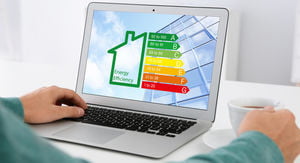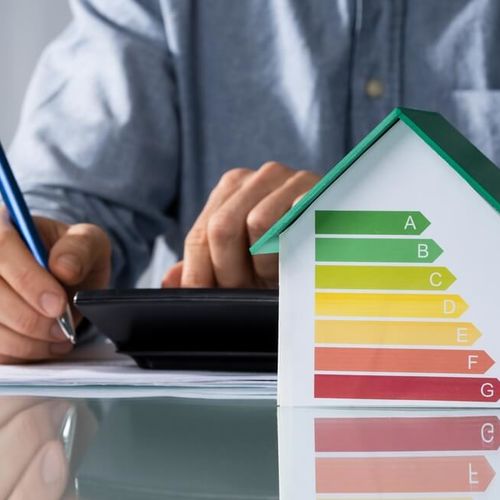The real estate market has been on a wild ride over the past few years. Between historically low mortgage rates during the pandemic and the Federal Reserve’s gradual (yet steady) tightening of monetary policy to battle inflation, the landscape has changed drastically. Many potential homebuyers and current homeowners are asking the same question: Is it better to buy and sell now, or wait for calmer waters?
Let’s explore key factors shaping the real estate world as we navigate 2025, especially when it comes to interest rates, housing affordability, and possible opportunities for savvy buyers. Ask your self Is It Time to Buy, or Should You Wait?
-
- Where Are Interest Rates Headed?
For several years after the COVID-19 pandemic began, the average 30-year fixed-rate mortgage hovered at historic lows—sometimes dipping below 3%. That made buying a home more attainable for many people. However, as inflation continued to intensify, the Federal Reserve raised its benchmark rate to help slow the economy, and mortgage rates followed suit. By the end of 2024, the average 30-year rate could surpass 7%, according to some forecasts.
Looking ahead: Rates May Stay Elevated: The Federal Reserve has indicated it will likely keep rates higher for longer in order to fully tame inflation. While they might drop a bit, it’s unlikely we will see the sub-3% mortgages of recent years. If inflation tapers off more quickly than expected, we could see a slight dip in mortgage rates. Still, a dramatic return to ultra-low levels remains unlikely.
- The Cooling Housing Market
 Rising rates increase monthly mortgage payments, which makes homeownership less affordable for many. As a result, fewer people are buying. This slowdown has created a more balanced market compared to the fierce bidding wars of 2021–2022. While it may not be a buyer’s market everywhere, the urgency to outbid others has cooled in many regions.
Rising rates increase monthly mortgage payments, which makes homeownership less affordable for many. As a result, fewer people are buying. This slowdown has created a more balanced market compared to the fierce bidding wars of 2021–2022. While it may not be a buyer’s market everywhere, the urgency to outbid others has cooled in many regions.
What does this mean for 2025? Fewer Competing Buyers. If rates remain high or tick up further, some buyers will stay on the sidelines, reducing competition. In areas that experienced skyrocketing prices, a slowdown could lead to more modest growth or even slight price declines. Remember that real estate is local. A cooling market nationwide doesn’t mean every neighborhood or city will follow the same pattern.
- Opportunities for Savvy Buyers
High rates aren’t great news if you’re in the market for a mortgage, but they can open doors in other ways. Fewer buyers often leads to more negotiating power. Instead of feeling pressured to submit sky-high offers, potential homeowners may be able to negotiate on price, closing costs, or repairs.
A few tactics to consider. By paying a bit more up front, you can secure a lower interest rate, potentially saving thousands over the life of your loan. If you plan to sell or refinance within a few years, an ARM might offer a lower initial rate. Just be sure you understand the risks if rates remain high or increase further when the rate adjusts. National figures on rates or inventory might not reflect what’s happening in your local market. Consult local professionals or data sources for a more accurate picture.
- Don’t Forget to Shop Around
Even minor differences in mortgage rates can translate into significant savings over time. With rates changing often, it’s crucial to obtain quotes from multiple lenders. Look not only at the interest rate, but also at closing costs, fees, and any rate lock periods that lenders offer.
Tips for comparing lenders: Gather Quotes on the Same Day. Rates can fluctuate daily (even hourly). Make sure you compare quotes collected around the same time. Ask About Rate Locks. If you’re concerned about rates rising before you close, inquire about how long a lender will let you lock in your quoted rate. Read the Fine Print, understand any extra fees or penalties that could increase your overall costs.
- Balancing Personal Readiness with Market Factors
At the end of the day, deciding whether to buy now or wait is about more than just interest rates. It’s also about your personal circumstances. Some questions to ask yourself! How Secure Is Your Employment? If your job is stable and you can handle a higher monthly payment, you might still manage a mortgage comfortably. How Long Do You Plan to Stay? If you expect to live in the home for five to seven years or longer, a higher rate could be manageable, especially if you can refinance later. Have You Saved Enough? Between closing costs, down payments, and potential repairs, make sure you’re financially prepared before jumping in. What’s Happening Locally? Reach out to real estate agents or brokers who know your market. Trends can differ drastically from one area to another.
- Forecast for 2025: Challenges and Possibilities
Elevated mortgage rates can feel daunting, but the real estate market doesn’t simply stop. Life events—new jobs, growing families, relocations—keep people buying and selling homes. If demand drops significantly, you might see prices stabilize or fall in certain regions, which can be good news for well-prepared buyers.
Conversely, if inflation cools enough for the Federal Reserve to relax its policies, mortgage rates might edge lower, boosting demand and pushing prices up again. Because there is no perfect crystal ball, staying informed and ready to pivot is your best strategy.
Final Thoughts
Keep Learning. Stay updated on the economy, Federal Reserve announcements, and your local real estate market. An increase in available homes paired with fewer buyers can create opportunities for deals. Talk to mortgage brokers, financial advisors, and real estate agents who have experience in your community. Buying a home isn’t just a financial decision—it’s also about lifestyle, community, and personal goals.
Yes, the era of sub-3% mortgages may be behind us for now, and many markets are seeing a cooldown. Yet for those with solid finances, these conditions could be an opening to secure a home without extreme bidding wars. If you’re uneasy about higher rates or need more time to strengthen your finances, waiting might be the wiser path. Either way, the key is to evaluate your own situation, gather the right information, and work with professionals you trust.
Disclaimer: This information is provided for educational purposes only and should not be considered financial or legal advice. Always consult with a professional advisor or mortgage expert for personalized guidance based on your individual circumstances.




